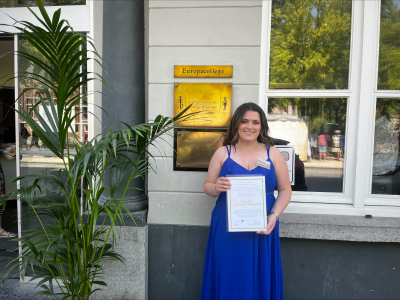The Commission v Malta ruling will close one door to corrupt actors buying their way into the EU
Brussels, Berlin and Valletta, 29 April 2025
In a landmark judgement delivered today, the Court of Justice of the European Union (CJEU) has ruled that Malta cannot continue operating its “golden passports” programme, which has allowed foreigners to acquire Maltese – and thereby EU – citizenship. The Commission’s case had sought an outright ban of citizenship-for-sale schemes, arguing that Malta has been granting citizenship to individuals without ensuring a genuine connection to the country and thus breaching EU law. The government of Malta maintained that citizenship matters fall strictly under national competence and that the concept of “genuine link” is not a requirement under EU law. Importantly, the CJEU held that Malta’s citizenship-by-investment scheme “amounts to the commercialisation of the granting of the status of national of a Member State and, by extension, Union citizenship”, and is thereby incompatible with the very nature of Union citizenship, as well as with the principle of sincere cooperation enshrined in Article 4(3) TEU.
In response, Transparency International’s Chief Executive Officer Maíra Martini, said:
“Today’s judgement confirms that member states cannot commodify EU citizenship and operate reckless golden passport programmes. Countless cases have shown how these schemes have granted safe haven to corrupt actors from around the world and other suspicious individuals in the EU. The ruling stops not only Malta from selling EU citizenship, but will also prevent other member states from doing the same.”
Matthew Caruana Galizia, Director of the Daphne Caruana Galizia Foundation, said:
“Our research shows that investment migration programmes bring little benefit to Malta. The CJEU judgement is a win for the people of Malta and for all EU residents who have been unfairly exposed to the whims of money launderers and corrupt criminals buying their way into the EU. We urge the government to comply with the ruling and abolish its citizenship-by-investment programme without delay – and tackle the risks posed by the golden visa scheme next.”
Nick Aiossa, Director of Transparency International EU, said:
“This case was about more than national citizenship; it was about putting an end to a dangerous policy that put the EU’s four freedoms up for sale. As long as money can buy EU citizenship, the entire bloc is exposed to risks of corruption from money launderers and criminals – but no longer. The CJEU ruling puts an end to Malta’s controversial golden passport scheme and will prevent other member states from trading in EU citizenship going forward.”
For any media enquiries, please contact
Transparency International, Sebastian Cushing Rodriguez: press@transparency.org
Transparency International EU, Pia Engelbrecht-Bogdanov: EUPress@transparency.org
Daphne Caruana Galizia Foundation (Malta), Corinne Vella: corinne@daphne.foundation
Notes to editors
- Transparency International recently collaborated with Simon Cox of Doughty Street Chambers to analyse the arguments as part of the Commission v Malta case. Read the full legal analysis on Verfassungsblog.





